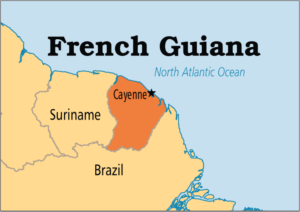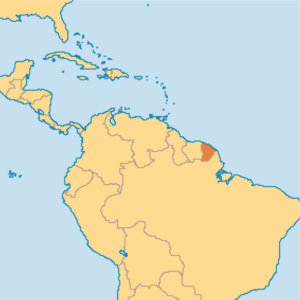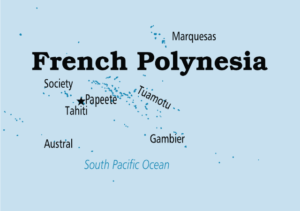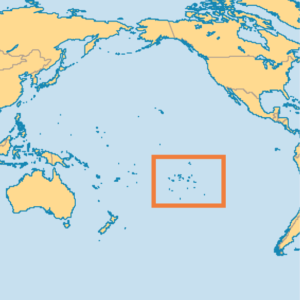TODAY’S READING FROM THE OLD TESTAMENT- 2 SAMUEL 9:1-11:27
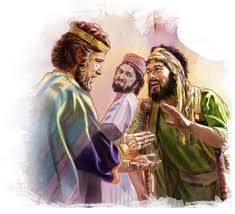 David inquires of Ziba, a servant of the deceased King Saul’s household, whether there is any survivor of the former King’s household to whom he can show God’s kindness. Ziba informs him that Jonathan’s son, Mephibosheth, survives, but he is lame in both feet (2 Samuel 20:3).
David inquires of Ziba, a servant of the deceased King Saul’s household, whether there is any survivor of the former King’s household to whom he can show God’s kindness. Ziba informs him that Jonathan’s son, Mephibosheth, survives, but he is lame in both feet (2 Samuel 20:3).
You may remember, fellow-readers, that we first met Mephibosheth in 2 Samuel 4:4 and learned these important facts:
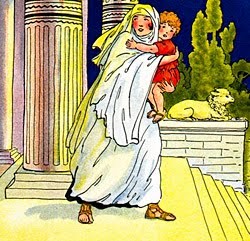 2 Samuel 4:4 4 Now Jonathan, Saul’s son, had a son crippled in his feet. He was five years old when the report of Saul and Jonathan came from Jezreel, and his nurse took him up and fled. And it happened that in her hurry to flee, he fell and became lame. And his name was Mephibosheth.
2 Samuel 4:4 4 Now Jonathan, Saul’s son, had a son crippled in his feet. He was five years old when the report of Saul and Jonathan came from Jezreel, and his nurse took him up and fled. And it happened that in her hurry to flee, he fell and became lame. And his name was Mephibosheth.
- He was dropped at the hands of Another
- He became lame as a result of the Fall
- He had no leg to stand on, as he was crippled in both feet (2 Samuel 4:4; 9:3, 13)
We must also remember that David made a covenant with Jonathan, whom he loved as his own soul, to show kindness to his descendants.
1 Samuel 20:14-15 14 “If I am still alive, will you not show me the lovingkindness of the LORD, that I may not die? 15 “You shall not cut off your lovingkindness from my house forever, not even when the LORD cuts off every one of the enemies of David from the face of the earth.”
When David summons Mephibosheth to meet with him, Mephibosheth fears losing his life due to the terrible way that his grandfather, Saul, treated David. In neighboring nations, it was often the case, and on occasion later in Israel, that the entire household of a former ruler would be killed by the new administration (1 King 16:11; 2 Kings 11:1-2). But David explains:
2 Samuel 9:7 7 David said to him, “Do not fear, for I will surely show kindness to you for the sake of your father Jonathan, and will restore to you all the land of your grandfather Saul; and you shall eat at my table regularly.”
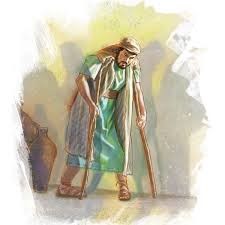 A prophetic illustration of the gracious treatment of undeserving sinners by the Greater and Truer David, Jesus Christ, emerges.
A prophetic illustration of the gracious treatment of undeserving sinners by the Greater and Truer David, Jesus Christ, emerges.
- We are all Mephibosheths.
- We are all thoroughly crippled as a result of the Fall, without a leg to stand on, in terms of the absolute righteousness required to stand before a Holy God.
- We were dropped at the hands of another (Adam).
Romans 5:12 12 Therefore, just as through one man sin entered into the world, and death through sin, and so death spread to all men, because all sinned—
- Although we have inherent lameness as a result of the Fall, because of a covenant made with Another (David made a covenant with Jonathan; God made a covenant with His obedient servant, Jesus Christ, on behalf of believers), kindness is guaranteed to the covenant’s beneficiaries.
Romans 5:19 19 For as through the one man’s disobedience the many were made sinners, even so through the obedience of the One the many will be made righteous.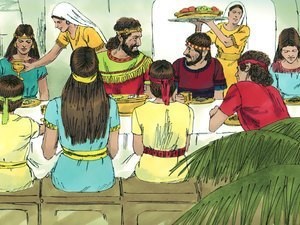
- As a result of a covenant made with another (God made a covenant with Jesus Christ), the crippled grandson is adopted, placed in the King’s palace, to eat at the King’s table, and his lost inheritance is fully restored.
- As Mephibosheth sits at the King’s table, his lame feet are no longer in view. He is treated as if he never fell and is a member of the King’s household, rather than the household of his enemy, Saul. (Do you see a striking resemblance to how the repentant believer is treated?)
- 2 Samuel 9:11b So Mephibosheth ate at David’s table as one of the king’s sons.
Take note of the provision that is made for Saul’s servant, Ziba, and his substantial household of fifteen sons and twenty servants. Ziba now has Mephibosheth, his former boss’s grandson, as his master. He and his family are given rights to farm and eat of the bounty of King Saul’s lands, which would bountifully supply the needs of both his household and the household of Mephibosheth.
The Bible shows us how vulnerable human beings are. Even their best motives and intentions can be misjudged. This was the case when King David wanted to reciprocate kindness to Hanun, whose father, the king of the Ammonites, had recently died. David sent a delegation to express sympathy to Hanun concerning his father.
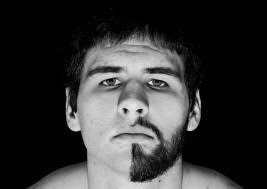 When the Israelite delegation comes to the land of the Ammonites, the Ammonite nobles accuse them of spying rather than receiving their well-intended expression of sympathy. Hanun seized David’s men, mistreated, and humiliated them, spitefully shaving half their beards and cutting off their garments at the middle at the buttocks.
When the Israelite delegation comes to the land of the Ammonites, the Ammonite nobles accuse them of spying rather than receiving their well-intended expression of sympathy. Hanun seized David’s men, mistreated, and humiliated them, spitefully shaving half their beards and cutting off their garments at the middle at the buttocks.
David tells the delegation to stay at Jericho until their beards grow back and their modest apparel could be restored.
We can see how hostilities, even wars, can begin over miscommunications, misreading’s, and missteps. David is rightfully angered by the treatment received. The Ammonites sense this and hire 33,000 extra soldiers to defend themselves against possible attacks.
David deploys his entire army of fighting men under the leadership of Joab and his brother Abishai. The troops under Joab’s command would fight the Arameans and fight the Ammonites under Abishai’s command.
Verse 11 reminds us that we may have different assignments in the Lord’s army, but we are in this war together and must be ready to support one another. Otherwise, you may win the battle but lose the war.
2 Samuel 10:11 11 He said, “If the Arameans are too strong for me, then you shall help me, but if the sons of Ammon are too strong for you, then I will come to help you.
It’s a good reminder that we need to be there for each other!
David is granted victory, and the Aramaeans became subject to Israel, and the Aramaean-Ammonite alliance was broken.
Our Old Testament reading concludes with the story of David’s adulterous relationship with Bathsheba, the wife of one of his more honorable soldiers, Uriah. This tragedy is recorded in the Bible for our instruction.
2 Samuel 11:27c But the thing that David had done was evil in the sight of the LORD.
Chapter 11 begins with a telling statement:
2 Samuel 11:1 1 Then it happened in the spring, at the time when kings go out to battle, that David sent Joab and his servants with him and all Israel, and they destroyed the sons of Ammon and besieged Rabbah. But David stayed at Jerusalem.
It was a time ‘when kings go out to battle’, but this king did not. He was detached. He did not have his armor on. He stayed at home, and his guard was down.
2 Timothy 2:4 4 No soldier in active service entangles himself in the affairs of everyday life, so that he may please the one who enlisted him as a soldier.
 In his case, idleness was the devil’s playground. He was tired. He got up from his bed and from the roof, his eyes roamed, and his lust was triggered by the sight of a beautiful bathing woman. God knows how men and women are wired, and so does Satan, to a great extent. What started as a wayward glance became idolatry and covetousness. David was now in the service of a false God and coveted this woman he did not yet know, simply because of an image that he bowed down to and worshiped.
In his case, idleness was the devil’s playground. He was tired. He got up from his bed and from the roof, his eyes roamed, and his lust was triggered by the sight of a beautiful bathing woman. God knows how men and women are wired, and so does Satan, to a great extent. What started as a wayward glance became idolatry and covetousness. David was now in the service of a false God and coveted this woman he did not yet know, simply because of an image that he bowed down to and worshiped.
1 Corinthians 10:13 13 No temptation has overtaken you but such as is common to man; and God is faithful, who will not allow you to be tempted beyond what you are able, but with the temptation will provide the way of escape also, so that you will be able to endure it.
God was providing a way of escape, but David was not interested. He sends a man to find out who the woman is. The man returns with a clear warning: “Isn’t this Bathsheba, the daughter of Eliam, and the wife of Uriah the Hittite?”
He is saying this woman is not an object. She is not an image, a centerfold, a titillating beauty to feed your lust. She is a human being, made in the image of God, for godly relationships. She is God’s creation. Furthermore, she is someone’s wife and someone’s daughter. She is the wife of Uriah and the daughter of Eliam.
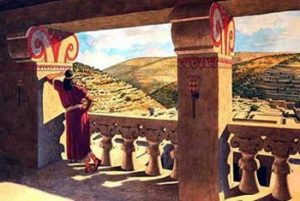 It would do us well to think of people in this light. David disregards the man’s report and sends messengers to get her. His sin is involving a wider circle. He sleeps with Bathsheba, she becomes pregnant, and rather than repent, David covers up and compounds his sin. He wants to make it appear that Bathsheba is pregnant with Uriah’s child. But Uriah has been faithfully serving in David’s army on the battlefront. David sends word to his commanding officer Joab to bring Uriah to him. David asks about the battle, disguising his schemes. He asks Uriah to go home and wash his feet, secretly hoping he would sleep with his wife. Uriah did not go home. He slept at the entrance of the palace. When David asks Uriah why he did not go home, Uriah’s reply should have brought conviction to David of his sin.
It would do us well to think of people in this light. David disregards the man’s report and sends messengers to get her. His sin is involving a wider circle. He sleeps with Bathsheba, she becomes pregnant, and rather than repent, David covers up and compounds his sin. He wants to make it appear that Bathsheba is pregnant with Uriah’s child. But Uriah has been faithfully serving in David’s army on the battlefront. David sends word to his commanding officer Joab to bring Uriah to him. David asks about the battle, disguising his schemes. He asks Uriah to go home and wash his feet, secretly hoping he would sleep with his wife. Uriah did not go home. He slept at the entrance of the palace. When David asks Uriah why he did not go home, Uriah’s reply should have brought conviction to David of his sin.
2 Samuel 11:11 11 Uriah said to David, “The ark and Israel and Judah are staying in temporary shelters, and my lord Joab and the servants of my lord are camping in the open field. Shall I then go to my house to eat and to drink and to lie with my wife? By your life and the life of your soul, I will not do this thing.”
Uriah was demonstrating the kind of integrity that one would expect of a man of God, a leader, a King.
Rather than confess his sin and get right with God, David’s sin is further compounded. He could still save face and give people the illusion that the child in Bathsheba’s womb was Uriah’s if Uriah were to die in battle.
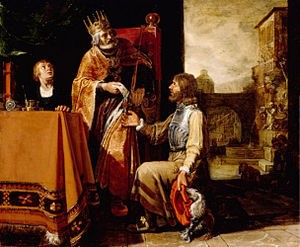 David writes a letter with instruction for the army’s commander, Joab, to put Uriah in the front line where the fighting would be fiercest, then withdraw from him so he will be struck down and die. Uriah had demonstrated such integrity that David knew that Uriah would not open the letter and read it.
David writes a letter with instruction for the army’s commander, Joab, to put Uriah in the front line where the fighting would be fiercest, then withdraw from him so he will be struck down and die. Uriah had demonstrated such integrity that David knew that Uriah would not open the letter and read it.
So, Joab put Uriah in the most vulnerable position, and during the siege, Uriah was killed.
When David hears the news of Uriah’s death, he addresses the messenger and summarizes what he is to report back to Joab:
2 Samuel 11:25 25 Then David said to the messenger, “Thus you shall say to Joab, ‘Do not let this thing displease you, for the sword devours one as well as another; make your battle against the city stronger and overthrow it’; and so encourage him.”
The wages of David’s sin is death (Romans 6:23a). Uriah was dead. Spoiler alert: the child in the womb will die shortly after birth. David’s sin left Bathsheba pregnant from a one-night stand and mourning the death of her husband. He left a circle of people deceived into complicitous actions, and he himself would know God’s displeasure with the grieving of the Holy Spirit.
He describes his inner condition in Psalm 32:3
Psalm 32:3 3 When I kept silent about my sin, my body wasted away through my groaning all day long.
TODAY’S READING FROM THE NEW TESTAMENT -JOHN 15:1-27
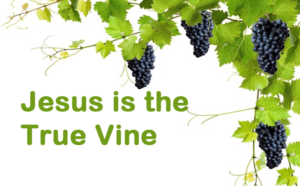 In the Passover meal shared with the disciples, they have partaken of the fruit of the vine. Jesus uses the illustration of the vine and the branches to describe the relationship of dependence that they, his disciples, must have with Him if they are to be fruitful.
In the Passover meal shared with the disciples, they have partaken of the fruit of the vine. Jesus uses the illustration of the vine and the branches to describe the relationship of dependence that they, his disciples, must have with Him if they are to be fruitful.
There is much in the Bible about Israel being a vine planted by the Lord. It proves to be a false vine, an unfaithful vine because it fails to bring forth fruit.
Isaiah 5:1-2 1 Let me sing now for my well-beloved A song of my beloved concerning His vineyard. My well-beloved had a vineyard on a fertile hill. 2 He dug it all around, removed its stones, and planted it with the choicest vine. And He built a tower in the middle of it and also hewed out a wine vat in it; Then He expected it to produce good grapes, but it produced only worthless ones.
Isaiah 5:7 7 For the vineyard of the LORD of hosts is the house of Israel and the men of Judah His delightful plant. Thus, He looked for justice, but behold, bloodshed; For righteousness, but behold, a cry of distress.
Psalm 80:8. 8 You removed a vine from Egypt; You drove out the nations and planted it. 9 You cleared the ground before it, and it took deep root and filled the land.
Psalm 80:15-16 15 Even the shoot which Your right hand has planted, and on the son whom You have strengthened for Yourself. 16 It is burned with fire; it is cut down; They perish at the rebuke of Your countenance.
Jeremiah 2:21 21 “Yet I planted you a choice vine, A completely faithful seed. How then have you turned yourself before Me Into the degenerate shoots of a foreign vine? (See also Hosea 10:1)
Jesus is the True Vine in contrast to the failure and degeneracy of the false vine, Israel. God, His Father, is the husbandman. He is sovereign over all and has ordained that the purpose of the Vine is to bring forth fruit for His own glory. As Christians, we are to abide in Christ the True Vine. (The Greek word for abide is ‘meno’, meaning ‘remain,’ or ‘stay put’- ‘rely in a state of identification and dependence’). Eternal fruit can only be brought forth through the True Vine, an eternal root in unbroken fellowship with the Father.
This passage is about the faith-union and resultant communion that believers have with Christ as they own Him and abide in Him as their Lord and Savior. Jesus does not say, “I am the trunk of the vine and you are the branches.” He is the entire Vine, root, main stem, and branches. He is the life of the Vine. He allows us to be the means of drawing from His life and bearing the fruit of His indwelling presence. Eternal fruit requires an eternal root. If we are relying on a relationship with Christ that is anything less than knowing Him as the Eternal God and our total resource, there is no possibility of producing eternal fruit.
As “in Christ ones,” we not only have union with Christ, but we share communion. This is especially manifested in our relationship with Him in prayer.
John 15:7-8 7 “If you abide in Me, and My words abide in you, ask whatever you wish, and it will be done for you. 8 “My Father is glorified by this, that you bear much fruit, and so prove to be My disciples.
TODAY’S READING FROM THE BOOK OF PSALMS- PSALM 119:49-64
Each verse in the next eight verse section begins with the Hebrew letter ‘Zayin.’
The Psalmist finds unending inspiration in God’s Word for his musical compositions:
Psalm 119:54 54 Your statutes are my songs in the house of my pilgrimage.
Verses 57-64 all start with the Hebrew letter, ‘Heth.’
It starts with this affirmation, “You are my portion, O Lord” (v. 57), and a resolve to keep God’s Word.
Verse 63 describes the quality of fellowship we should have with our closest friends.
Psalm 119:63 63 I am a companion of all those who fear You, and of those who keep Your precepts.
TODAY’S READING FROM THE BOOK OF PROVERBS- PROVERBS 16:1-3
We have a responsibility to make our plans, but at the same time, we recognize that God knows best. He is our supervisor in chief, and we must submit our plans to Him and be sure our works are in line with what He has called us to do.
Proverbs 16:1-3 1 The plans of the heart belong to man, but the answer of the tongue is from the LORD. 2 All the ways of a man are clean in his own sight, But the LORD weighs the motives. 3 Commit your works to the LORD And your plans will be established.
PRAY FOR THE NATIONS-
Department of French Guiana
Latin America
Area: 86,504 sq. km
Sparsely inhabited jungle territory in northeast South America. Great diversity of flora and fauna with over 400,000 species known.
Population: 231,313 Annual Growth: 2.75%
Capital: Cayenne
Urbanites: 76.4%
Peoples
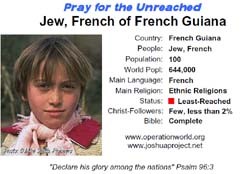 Peoples: 26 (4% unreached) All peoples
Peoples: 26 (4% unreached) All peoples
Unreached Peoples Prayer Card
Official language: French. Guianese French Creole widely spoken Languages: 15
Religion
Largest Religion: Christian
|
Religion |
|
Pop % |
Ann Gr |
|
211,073 |
91.25 |
2.8 |
|
|
10,361 |
4.5 |
3.5 |
Challenges for Prayer
The most responsive peoples are Haitians, Antilleans, Hmong, Amerindian tribal peoples, Brazilians, and the interior bush tribes (Maroons). It is among these groups that the Pentecostals, Baptists, CMA, Nazarenes, and Brethren are growing. Pray for a cooperative spirit among evangelicals and for continued unifying influence of the Suriname Bible Society, especially among ministers.
French Polynesia
Pacific
Geography
Five island archipelagos and 118 islands – (Society, Tuamotu, Marquesas, Austral and Gambier) in south-central Pacific. Tahiti, the largest island at 1,042 sq. km, is where over 70% live.
Population: 272,394 Annual Growth: 1.30%
Capital: Papeete
Urbanites: 51.4%
Peoples
Official language: French and Tahitian Languages:11
Religion
Largest Religion: Christian
|
Religion |
|
Pop % |
Ann Gr |
|
251,283 |
92.25 |
1.3 |
|
|
19,712 |
7.2 |
2.6 |
Challenges for Prayer
The less-evangelized – almost all adhere to some form of Christianity, but many are without a clear gospel witness:
a) The outer island groups are largely Catholic with little evangelical presence. The Marquesans, Mangarevans, and Tuamotuans cannot easily understand the related Tahitian language and have little of the Bible in their own languages.
b) Significant emigration from the outer islands to Tahiti gives opportunities for Islanders to encounter Jesus in Papeete, but those who move are too often lost to the Church.
c) The Chinese have a few Protestants, Catholics, and Chinese ethnoreligionists, but most Chinese are effectively secular.
d) The French community lives a life apart, having minimal contact with any Church.
e) The Jewish community, newly arrived and in need of their Messiah.
PRAYER: Lord, we are grateful for the benefits that we receive in the New Covenant of Your grace. We are crippled Mephibosheths, with no righteousness of our own to stand on. But we rejoice in our salvation- that you forgive us of our trespasses and sins, and we are adopted into your family and feast at your table where our lameness is no longer in view. Keep us alert to the ways of escape that you provide when we are tempted. We do not want to sin against You. Keep us abiding in You, loving what You love, and trusting You for all that You are and have called us to do in Your strength that the Father be glorified. In Jesus Name, Amen.
Pastor David

